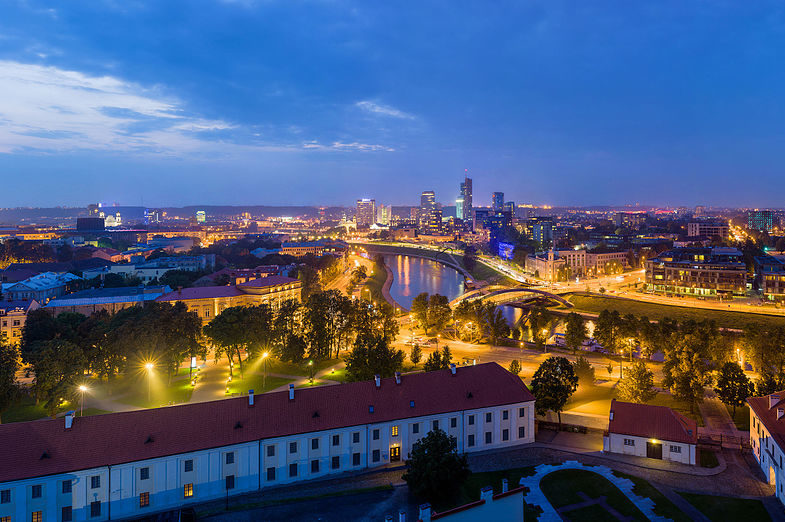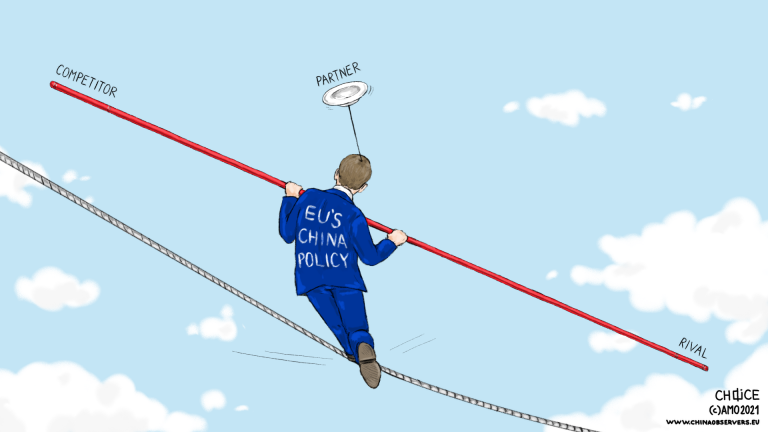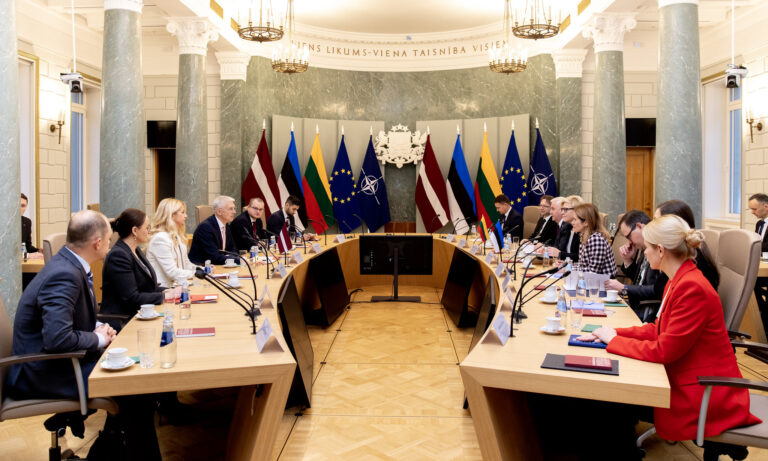
Until recently, Taiwan (Republic of China, ROC) had not drawn much attention in the three Baltic states in general and Lithuania in particular. Despite their gratitude for the ROC’s consistent non-recognition of their occupation by the Soviets, the Baltic trio chose to establish official diplomatic relations with the People’s Republic soon after regaining independence in the early 1990s. Although neighboring Latvia usually gained more attention in terms of Taiwan’s profile in the Baltic states due to its hosting the island’s only representative office in the region, in recent years, it has been Lithuania that increasingly stood out and shook up the long-accepted status quo on this complex question.
The shift has come around since at least 2019, an unprecedentedly eventful year for Sino-Lithuanian relations. Indeed, the landmark National Threat Assessment 2019 by Lithuanian intelligence bodies identified Chinese espionage activities as a threat to the country’s national security, for the first time stating that it is the ‘domestic policy issues’ that drive China’s intelligence activities in Lithuania, as it seeks that Vilnius ‘would not support independence of Tibet and Taiwan and would not address these issues on the international level’. Curiously, this was precisely the direction that Lithuania took the following year, spurred by the growing repression in China, developments in bilateral relations as well as the COVID-19 pandemic.
The Pandemic Factor
In April 2020, largely reacting to Taipei’s exceptionally effective handling of the pandemic and the assistance that had been provided to Lithuania, around 200 Lithuanian politicians and public figures sent an open letter to the country’s president Gitanas Nausėda, asking him to support the island in its bid to be fully included into the activities of the World Health Organization (WHO), despite Beijing’s opposition. While the President declined to back Taiwan’s membership there, the then-Lithuanian foreign minister Linas Linkevičius called the head of the WHO, asking him to at least invite representatives from the island to the forthcoming World Health Assembly as observers.
China predictably refused even to entertain such an option. However, on June 18 , one month after the WHO assembly and on the exact day that the Lithuanian president delivered his first annual State of the Nation Address in the Seimas (the Lithuanian parliament), the Taiwanese representative to the Baltic states Andy Chin used the opportunity to speak about the island’s handling of the pandemic on that same platform at the invitation of the then-opposition Homeland Union – Lithuanian Christian Democrats, one of the country’s two largest political parties. Apparently, this marked the highest status that the Taiwanese officials have ever been accorded with in Lithuania, or the Baltic states in general for that matter.
Taiwan in Lithuania’s Electoral Cycle
Meanwhile, the Taiwan issue had already entered the rising popular debates that revolved around the upcoming parliamentary elections in Lithuania. Most tellingly, in early June one of the country’s most popular news websites published an op-ed inspired by Beijing’s recent decision to apply national security legislation in Hong Kong, that actually amounted to a full indictment against the assertive turn in Chinese domestic and foreign policies, calling for Lithuania to decidedly choose between liberal democratic allies and a ‘totalitarian and predatory Chinese communist regime’.
The article mentioned the island nation eight times, and explicitly recommended that ‘Lithuania must comprehensively strengthen her relations with Taiwan and support its political recognition in the international community as a de facto independent democratic state governed by the rule of law’. One could largely disregard this op-ed otherwise, but the piece was co-authored by two prominent members of the Homeland Union, including the party’s leader Gabrielius Landsbergis who would become Lithuania’s next foreign minister, while the other author, Mantas Adomėnas, would serve as his deputy.
Lithuanian politicians were also vocal about Chinese designs on Taiwan in other countries. In August, the Lithuanian group of members of the national and European parliaments turned out to be by far the largest bloc of signatories of a joint public statement of support to Miloš Vystrčil, president of the Czech Senate whose visit to Taiwan caused a particularly nasty dispute with Beijing.
In the meantime, several prominent representatives of Lithuanian centre-right and liberal political parties continued to openly contemplate the so-called ‘Iceland moment’ which evoked the nationally-appreciated story of this relatively small and distant country being the first to recognise Lithuania’s independence from the Soviet Union. The recently created liberal Freedom Party included in its electoral programme a clause supporting Taiwan’s statehood and independence.
The October election results brought to power forces which represent the right of the political spectrum in Lithuania. The new coalition includes the leading Homeland Union, the Freedom Party, and the Liberal Movement/Union which finds itself ideologically lodged in between the first two. The triple coalition agreement pledged that the new government would carry out a ‘values-based foreign policy,’ stating explicitly that it ‘will actively oppose any violation of human rights and democratic freedoms, and will defend those who are fighting for freedom around the world, from Belarus to Taiwan’. Apparently such wording marked a milder consensus among the partners as the Freedom Party was advocating for a recognition clause. Notably, however, Taiwan has not been mentioned in the official programme of the new government. Instead, Lithuania’s new foreign minister Landsbergis indicated that this particular issue would be primarily dealt with in the Seimas, while the country itself would seriously contemplate accepting the island’s offer to open its permanent “business representation” in Vilnius.
All these Lithuanian initiatives raised entirely predictable but largely ignored ire from the Chinese embassy in Vilnius, while the Taiwanese Foreign Ministry ‘tweeted’ its appreciation of the coalition agreement. Tellingly, as of the end of 2020, the Provisional Parliamentary Group for Relations with the Republic of China (Taiwan) was composed of 32 recently elected parliamentarians (out of the total 141), growing by 5 members since its previous 2016–2020 incarnation. One would surely expect a parliamentary normalization of various contentious China-related initiatives going forward, especially considering that many of those politicians also sit in provisional groups for relations with Tibet and Hong Kong.
Taiwan’s Rising Profile beyond High Politics
Nevertheless, the recent change in the status quo on the Taiwan issue in Lithuania goes beyond pure politics. Tellingly, on October 8, 2020, i.e. a week after the unusually quiet mainland China’s National Day celebration and just two days ahead of the National Day of the ROC, the Lithuania-Taiwan Forum was established in Vilnius by some sixty prominent representatives of the host society. The goals of the forum is to develop mutual cultural, scientific, economic, and political relations and to support the island’s aspirations related to democracy, human rights, and self-determination.
Although it is yet hard to foresee the forum’s work in practice, this framework definitely marks the sudden rise of Taiwanese visibility in Lithuania and the Baltic states in general. In an interview given to the Lithuanian media in November, the island’s representative emphasized that besides the pandemic alleviation efforts and bilateral trade and mutual investment, there are many other essentially non-political spheres for further cooperation between Lithuania and Taiwan, including education, tourism and the fight against climate change.
Only time will tell whether such expectations would materialize, but both Lithuanians and Taiwanese have already begun working to make that happen. The next possible milestone in this regard would be the mentioned possibility of opening the island’s permanent representative office in Vilnius. One is left wondering about Beijing’s reaction to all of this, considering the history of economic punishment through market access restrictions whenever Vilnius was deemed ‘guilty’ for its stance on the Tibetan issue.
At the same time, however, China is lacking a strong leverage in Lithuania, as the level of bilateral economic relationship, and thus the extent of Lithuania‘s dependence on the Chinese market, is much smaller than that of almost any other larger country in Europe. The proponents of the Taiwanese-Lithuanian friendship thus remain hopeful.
Written by
Konstantinas Andrijauskas
Konstantinas is an Associate Professor of Asian Studies and International Politics at Vilnius University. Previously, he was a senior visiting scholar at China's Fudan and Zhejiang universities as well as Columbia University through the Fulbright Scholar Program. He has authored more than a dozen academic publications in several languages, including a Lithuanian-language monograph “The Clash between China, India and Russia in Eurasia’s Civilizational Spaces”.


